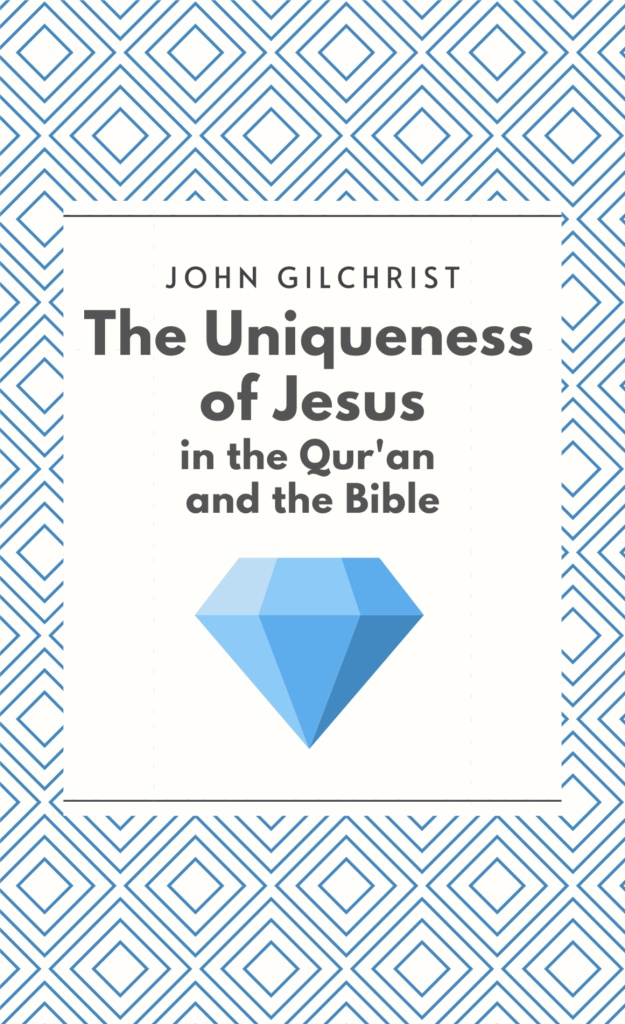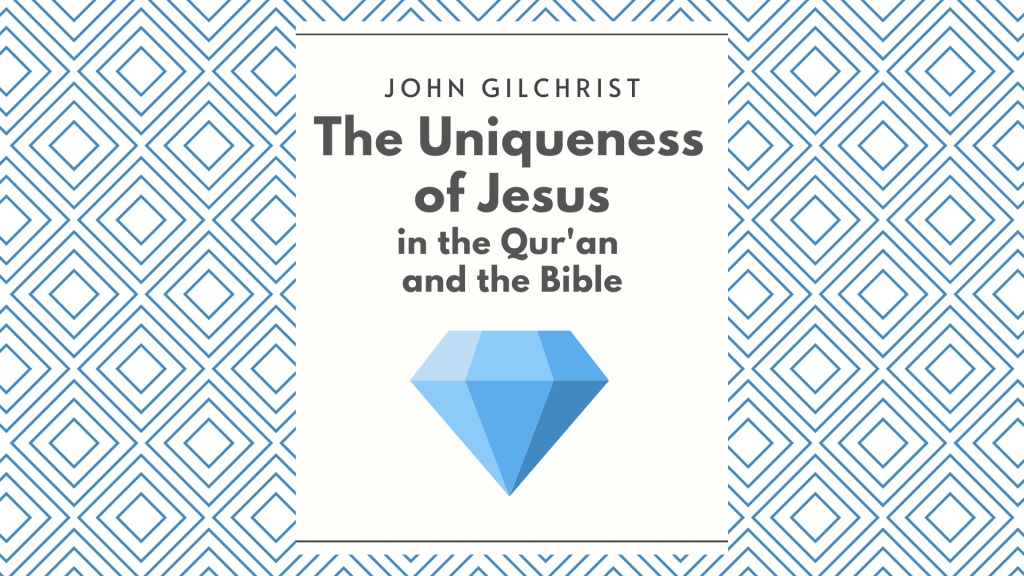The Virgin-Birth of Jesus
The Uniqueness of Jesus in the Qur'an and the Bible


Chapters
This first feature - so strangely denied in some of the peculiar quarters of Islam and Christianity - is one of the most obvious and unambiguous teachings of the Qur'an and the Bible and is fundamentally upheld by both books. It is referred to more than once in the Qur'an but is particularly set out in some detail in Surah 19, verses 16 to 34. The following verses from this passage are here quoted to prove the point:
And make mention of Mary in the Scripture, when she had withdrawn from her people to a chamber looking East, and had chosen seclusion from them. Then We sent unto her Our spirit and it assumed for her the likeness of a perfect man. She said: Lo! I seek refuge in the Beneficent One from thee, if thou art God-fearing. He said: I am only a messenger from thy Lord, that I may bestow on thee a faultless son. She said: How can I have a son when no mortal hath touched me, neither have I been unchaste? He said: So it will be. Thy Lord saith: It is easy for Me. And it will be that We may make of him a revelation for mankind and a mercy from Us, and it is a thing ordained. And she conceived him, and she withdrew with him to a far place. Quran 19.16-22.
If Mary had conceived by another man, why would the angel have appeared to her to explain the conception of her son? Clearly from the text we can see that the angel had come not only to set her mind at rest about the pregnancy she was about to experience but to explain that this unique event was simply the effect of God's desire to make this son a revelation for mankind. She was to conceive him in a special way because there was to be something special about her son. Secondly, what other interpretation can be derived from the words "How can I have a son when no mortal hath touched me, neither have I been unchaste?". These words clearly imply that Mary was a virgin when the child was conceived.
It is surely not necessary to press this point further. The language of the Qur'an is unambiguous about the virgin-birth of Christ and further support for it is found in Quran 4.156. In that verse Mary is cleared from the base charge of the Jews that she had illegitimately conceived Jesus out of wedlock. Again Quran 21.91 explains the conception of Jesus as the direct action of God within an unmarried woman who was completely free of any unchastity.
Surely this is even more abundantly proved by the title Jesus is given more often than any other in the Qur'an - the son of Mary. It is common in Semitic communities to name a man as the son of his father, for example, Muhammad ibn Abdullah, Muhammad ibn Ishaq (early historian of Islam), Zaid ibn Sabet, etc., but we do not find men named as the sons of their mothers. Why then is Jesus so often called the son of Mary (Isa ibn Maryam) in the Qur'an? Surely the striking repetition of this name as well as its exceptional character demand that Jesus was born of his mother alone. Is not the frequency of this title evidence of the unique manner of the birth of Jesus? In the Qur'an the names of women are conspicuous by their absence. Surely the mother of Jesus is mentioned by name so regularly because of her significant place in human history as the only woman to bear a son while still a virgin. This alone can explain the prominence Mary receives in the Qur'an. It is safe to conclude that the Qur'an teaches the virgin-birth of Jesus Christ.
No right-thinking man will deny that the Bible also teaches the virgin-birth of Jesus Christ. Throughout its history the Christian Church has held to this belief and we need only quote this passage to prove that the doctrine is soundly based on the Bible:
In the sixth month the angel Gabriel was sent from God to a city of Galilee named Nazareth, to a virgin betrothed to a man whose name was Joseph, of the house of David; and the virgin's name was Mary. And he came to her and said "Hail, O favored one, the Lord is with you!" But she was greatly troubled at the saying and considered in her mind what sort of greeting this might be. And the angel said to her "Do not be afraid, Mary, for you have found favour with God. And behold, you will conceive in your womb and bear a son, and you shall call his name Jesus". Luke 1:26-31.
Twice the mother of Jesus is plainly described as a virgin in that passage. When she replied to the angel, "How shall this be, since I have no husband?" (Luke 1:34), the angel then explained that the conception would not be by human means but by the power of the Holy Spirit of God. We are particularly privileged to have a second, independent account of the virgin-birth in the Bible and it is set forth in this passage:
Now the birth of Jesus Christ took place in this way. When his mother Mary had been betrothed to Joseph, before they came together she was found to be with child of the Holy Spirit; and her husband Joseph, being a just man and unwilling to put her to shame, resolved to divorce her quietly. But as he considered this, behold an angel of the Lord appeared to him in a dream, saying, "Joseph, son of David, do not fear to take Mary your wife, for that which is conceived in her is of the Holy Spirit; she will bear a son, and you shall call his name Jesus, for he will save his people from their sins". Matthew 1:18-21.
Once again the conception of Jesus is described as being the result of he work of the Holy Spirit and once again, as in the Qur'an, it is found that an angel appears to explain the phenomenon, in this case to Joseph. Why should there be these instances of angelic manifestations to explain the birth of Jesus if his mother had conceived him through some other man? The texts speak plainly for themselves and there can be no question about the birth of Christ. The angel appeared to Joseph and Mary to explain to them both that the conception of Jesus was by the special intervention of the Holy Spirit.
Therefore Christians and Muslims have, in the birth of Jesus, something in which the Qur'an and the Bible are agreed. These two books both teach as a fact that he was born of a virgin-woman by the will of God through the power of the Holy Spirit.